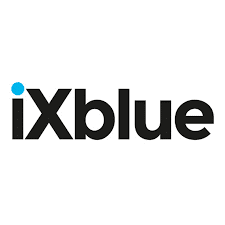
Europartner is an accounting office that monitors international companies operations in Brazil.
With more than 15 years of experience, Europartner provides support to international companies seeking to operate in Brazil.
With more than 15 years of experience, Europartner provides support to international companies seeking to operate in Brazil.
Whether you are an international company or a business owner, Europartner is here to guide your company formation and monitor your operations in Brazil. We provide full administrative, legal, accounting and tax support, meeting all your needs.
Our range of services is adaptable to any type of business, from start-ups to international groups.
Advisory during incorporation:
Preliminary studies for the incorporation of the company, creation of the company, preparation of the articles of incorporation, registration of the company, opening of bank accounts, tax and commercial domicile, company administration and legal representation of partners.
Service outsourcing:
We offer a wide variety of solutions, including accounting entries, calculation of taxes and fees, preparation of income declarations and financial statements and management of all tax and social obligations.
Furthermore, we offer the administrative and financial management of your company: we issue supplier payments, invoices (Brazilian electronic invoice), collections of accounts receivable, we follow national and international banking transactions, finally we produce monthly financial reports and cash flow forecasts.
In addition to accounting expertise, our consulting activities are carried out in accordance with our values and ethics, which guarantee a climate of trust in relationships with our clients and partners.
Our team facilitates the entry of foreign companies into Brazil, offering assistance from company creation to obtaining legal representation, ensuring a solid foundation for operations in the country.
Learn more
Free up your time and resources with our outsourcing services. We manage the administrative side, employer of record and more, allowing you to focus on growing your business with confidence.
Learn more
Europartner acts as an international management consultant for companies already established or wishing to establish themselves in Brazil.
After 15 years of existence, we advised more than 300 companies monthly from all over the world, mainly in the following countries: United States, Canada, France, England, Portugal, Spain, China, India, Singapore and Japan.
Europartner is an accounting firm with European management and Euro-Brazilian teams. Its cultural diversity has allowed it to respond to the most specific problems of its international clients.
We will be delighted to welcome you to our offices in São Paulo, Rio de Janeiro and Belo Horizonte.
Get in touch with Europartner

Providing differentiated services to our clients, aiming to offer a robust structure so that you can grow when creating or exploring a company in the Brazilian market.
The diversity of cultures ensures success in the business world. Europartner’s Euro-Brazilian team speaks the language of Brazil and yours.
Proactivity: We serve and advise with agility and precision.
Excellence: We offer quality services, supported by innovation and experience.
Confidentiality: We are committed to the complete security of your data.
What people say about Europartner








Articles with important guidelines about Brazil
Read about some advantages of investing in Brazil